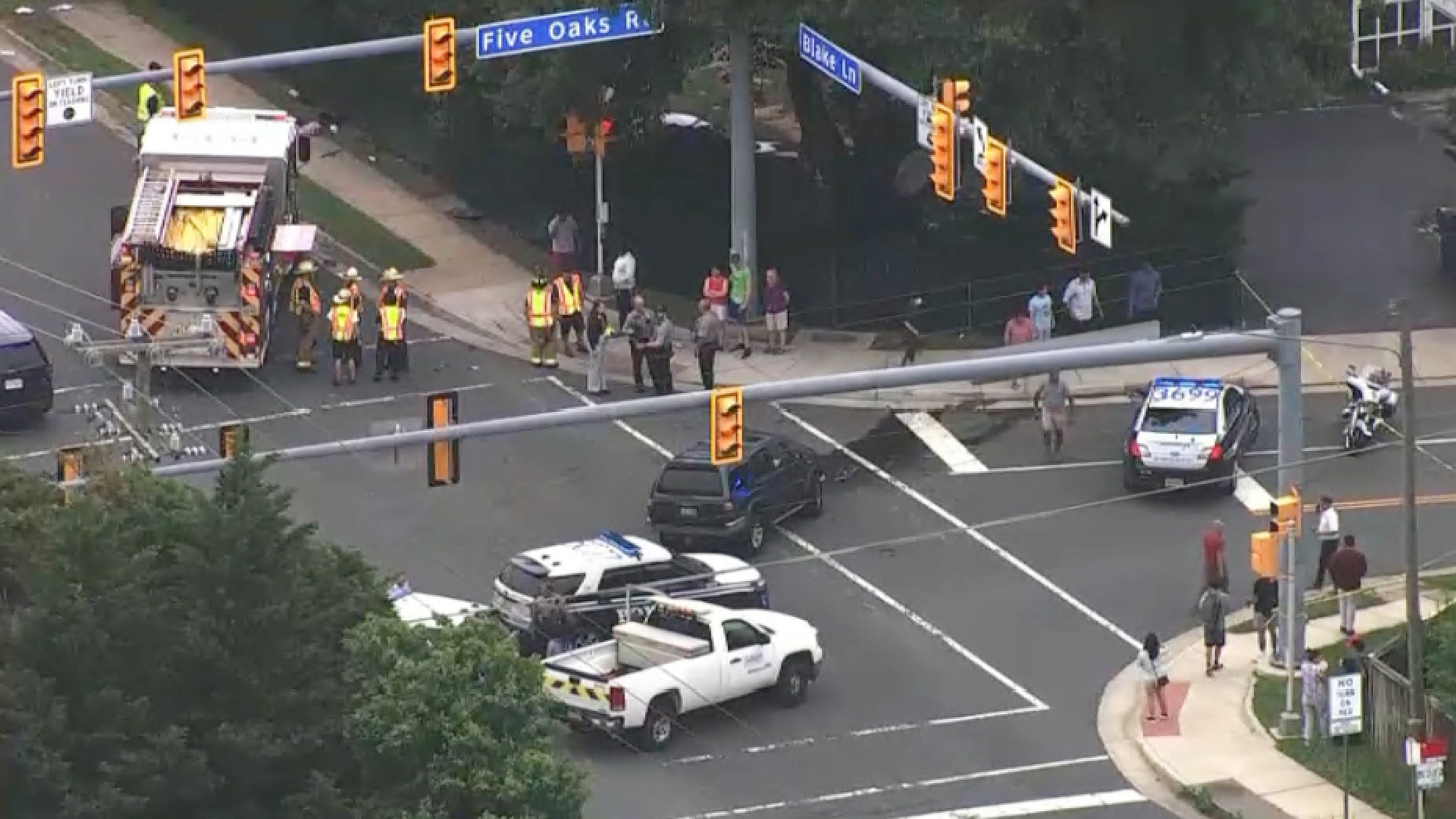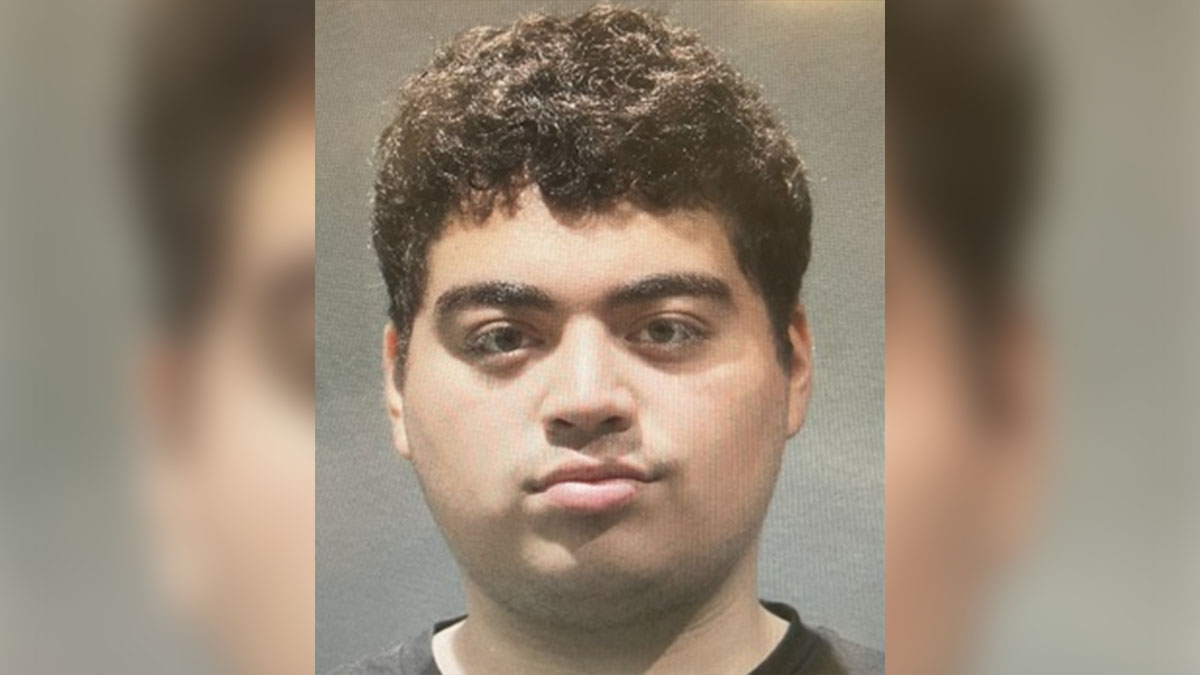Former legendary Georgetown basketball coach John Thompson Jr. has died at age 78, a statement from his family confirms.
Thompson became the first Black coach to win an NCAA championship in 1984. Earning Big East coach of the year honors three times, he turned the Hoyas program into the gold standard for Big East basketball during his 27 years at the helm. He was enshrined into the Naismith Memorial Basketball Hall of Fame in 1999.
Thompson is survived by his three children, John Thompson III, Ron and Tiffany.
His death was announced in a family statement released by Georgetown on Monday. No details were disclosed.
We're making it easier for you to find stories that matter with our new newsletter — The 4Front. Sign up here and get news that is important for you to your inbox.
News
News updates for Washington, D.C., Maryland and Virginia
"We are heartbroken to share the news of the passing of our father, John Thompson, Jr. Our father was an inspiration to many and devoted his life to developing young people not simply on, but most importantly, off the basketball court. He is revered as a historic shepherd of the sport, dedicated to the welfare of his community above all else. However, for us, his greatest legacy remains as a father, grandfather, uncle, and friend," a statement from Thompson's family read in part.
"Coach John R. Thompson Jr. had a profound impact on our university. Forty-eight years ago, he joined the Georgetown community and with his distinctive style, commitment to excellence, and clear sense of purpose, transformed Georgetown Basketball," Georgetown President John J. DeGioia said in a statement. "We are a better university because of John’s leadership — he challenged us to live up to our values and enabled all of us to see new possibilities, for ourselves, and for the impact we could have on the world. John will be remembered for many things — his historic achievements, the lives he shaped, his advocacy for social and racial justice — but perhaps most of all, for the authenticity through which he lived his life."
“I know I speak for all D.C. residents in celebrating the life of coach John Thompson, who we watched, we loved, who brought home championships to D.C., and we want to extend our condolences to his family and his Georgetown family, his basketball family, and all people who just loved this tower of a man, who was an inspiration to many,” D.C. Mayor Muriel Bowser said.
Thompson took the Georgetown job in 1972, inheriting a 3-23 team. Prior to taking the job, Thompson became a Washington, D.C., basketball legend in his playing days at Archbishop Carroll High school. An imposing 6-foot-10 center, he led Carroll to 55 consecutive victories. Thompson played college basketball at Providence before winning two titles with the Boston Celtics during a brief NBA career as the backup to Hall-of-Fame center Bill Russell.
Learning under Celtics Hall-of-Fame coach Red Auerbach, Thomspon quickly turned to coaching after he left the NBA. He took over the basketball program at St. Anthony's in D.C., compiling a 122-28 record before taking the Georgetown job.
There, Thompson turned the Hoyas into a perennial powerhouse. The Hoyas won the Big East Tournament six times in the conference's first 10 years. Georgetown appeared in three Final Fours in 1982, 1984 and 1985 — reaching the championship game each time — and reached the NCAA Tournament 20 times. Thompson mentored eight NBA first-round draft picks and 26 overall, including Patrick Ewing, Alozno Mourning and Allen Iverson. He finished with 596 career NCAA wins. Thompson also coached the United States to a bronze medal at the 1988 Summer Olympics in Seoul and was an assistant coach on the 1976 gold-medal winning team in Montreal. Thompson stepped down as Georgetown head coach in 1999.
One of his sons, John Thompson III, was hired as Georgetown’s coach in 2004. When the son was fired in 2017, the elder Thompson — known affectionately as “Big John” or “Pops” to many — was at the news conference announcing Ewing as the successor.
"Georgetown University, the sport of basketball and world has lost someone who I consider to be a father figure, confidant and role model," Ewing tweeted.
Along the way, Thompson said what he thought, shielded his players from the media and took positions that weren’t always popular. He never shied away from sensitive topics — particularly the role of race in both sports and society — and he once famously walked off the court before a game to protest an NCAA rule because he felt it hurt minority athletes.
“I’ll probably be remembered for all the things that kept me out of the Hall of Fame, ironically, more than for the things that got me into it,” Thompson said on the day he was elected to the Hall in 1999.
Off the court, Thompson was both a role model and a lightning rod. A stickler for academics, he kept a deflated basketball on his desk, a reminder to his players that a degree was a necessity because a career in basketball relied on a tenuous “nine pounds of air.”
The school boasted that 76 of 78 players who played four seasons under Thompson received their degrees.
He was a Black coach who recruited mostly Black players to a predominantly white Jesuit university in Washington, and Thompson never hesitated to speak out on behalf of his players.
One of the most dramatic moments in Georgetown history came on Jan. 14, 1989, when he walked off the court to a standing ovation before the tipoff of a home game against Boston College, demonstrating in a most public way his displeasure against NCAA Proposition 42.
The rule denied athletic scholarships to freshmen who didn’t meet certain requirements, and Thompson said it was biased against underprivileged students. Opposition from Thompson, and others, led the NCAA to modify the rule.
"John Thompson was one of the best to ever coach the game of college basketball," George Mason University head coach Dave Paulsen said in a statement. "As a college student who envisioned a career in coaching, he impressed me with his willingness to use his platform to speak out against injustices. I vividly remember him walking off the court in protest against the infamous Proposition 48 legislation. It was the first time I’d noticed a coach taking the lead to fight against injustice. It’s fitting that this past week NBA players — many years later — followed his lead in walking off the court. Coach Thompson’s ability to coach at the highest level while pursuing social change was an inspiration to coaches at all levels of the game.”
"John Thompson was truly a unicorn and the most visible and successful Black head coach in college basketball," George Mason assistant coach Duane Simpkins said. "As a Black kid from the DC area, he inspired me. His presence and standing within the community made him so much more than a coach. He refused to back down from his beliefs or what he stood for. To take his stance on Proposition 48 and then follow it up and walk out before a game – that had never been done before, especially by a man of color. He was steadfast and committed to his charge, regardless of how others would perceive it. He was the standard bearer in college basketball on how to be a force for change.”
Thompson’s most daring move came that same year, when he summoned notorious drug kingpin Rayful Edmond III for a meeting in the coach’s office. Thompson warned Edmond to stop associating with Hoyas players and to leave them alone, using his respect in the Black community to become one of the few people to stare down Edmond and not face a reprisal.
Though aware of his influence, Thompson did not take pride in becoming the first Black coach to take a team to the Final Four, and he let a room full of reporters know it when asked his feelings on the subject at a news conference in 1982.
“I resent the hell out of that question if it implies I am the first Black coach competent enough to take a team to the Final Four,” Thompson said. “Other Blacks have been denied the right in this country; coaches who have the ability. I don’t take any pride in being the first Black coach in the Final Four. I find the question extremely offensive.”
Centers Ewing, Mourning and Dikembe Mutombo turned Georgetown into “Big Man U” under Thompson, although his last superstar was guard Allen Iverson, who in 1996 also became the first player under Thompson to leave school early for the NBA draft.
“Thanks for Saving My Life Coach,” Iverson wrote at the start of an Instagram post Monday with photos of the pair.
"This year just keeps getting worse!" Washington Wizards star Bradley Beal tweeted.
Stay connected with the MyTeams app. Click here to download for comprehensive coverage of your teams.
MORE NCAA NEWS:
- Opts Out: LSU's Ja'Marr Chase
- Fields petition: B1G players want to play
- Local Businesses Hurt: Season canceled
Hall of Fame Georgetown basketball coach John Thompson Jr. dies at 78 originally appeared on NBC Sports Washington



